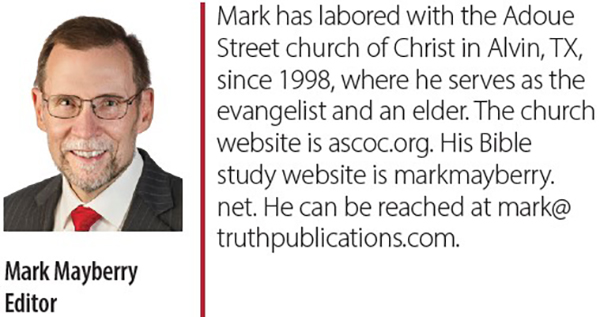CHALLENGES FACING CHRISTIANS: The Progressive Movement: An Overview

The Progressive Movement (as identified in today's media) is also called Humanism, Liberalism, or Secularism. Although atheistic to the core, its proponents manifest a religious fervor rivaling the most ardent fundamentalist.
Introduction
Historically, Americans have valued the four freedoms as articulated by President Franklin D. Roosevelt in his 1941 State of the Union address: freedom of speech, freedom of worship, freedom from want, and freedom from fear. Nevertheless, all four are under assault by the modern progressive movement. The cancel culture seeks to silence all dissent from contemporary dogma. During the COVID crisis, liberal politicians severely restricted our right to engage in public worship, allegedly to protect the public. Still, inconsistent application of such guidelines shows an underlying bias against religion. Progressive policies stressing confiscatory taxation of wealth would increase poverty rather than relieve it. The cancel culture has created a climate of fear: unless you endorse, embrace and advocate the current pronouncements of the progressive movement (no matter how extreme, absurd, or patently false), you face the danger of being publicly mobbed and mocked: you could lose your job, have your Facebook/Twitter account suspended, or be denounced as a bitter clinger, a deplorable, a pariah, a non-entity. How did we get to this point?
An understanding of the present requires knowledge of the past. The progressive movement originated in the early 20th century as a reaction to the dramatic societal changes that had occurred since our nation’s founding. America shifted from an agrarian to an industrial economy. The original 13 colonies shared a common heritage. Still, over the next 125 years, immigrants flooded to our shores from Ireland, Europe, and Asia, adding a rich diversity of culture, language, and traditions. Since the United States had changed so dramatically, progressives argued that it needed a new governing philosophy. If the constitution could not be wholly re-written, then it should be radically re-interpreted.
Woodrow Wilson, the 28th President of the United States, who was in office from 1913 to 1921, is considered The “Godfather of Liberalism/Progressivism.” Before entering politics, he was an academic, educated at Johns Hopkins, serving as a professor at several elite universities before becoming President of Princeton University, and then governor of New Jersey. Wilson was a product of his day’s prevailing academic philosophy, strongly influenced by German rationalism and evolutionary theory. This affected his political philosophy in the following ways:
Not only does nature evolve, so also does humanity. Modern man is more advanced than preceding generations. Since we are progressing toward a brighter future, we are no longer answerable to past standards, rules or regulations, etc. Riding the upward arch of history provides greater perspective. Since past creeds, especially Judeo-Christian morality, were no longer applicable to the present enlightened era, progressives sought to impose dramatic structural changes on the established order, moral standards, political norms, etc.
According to Wilson, and by extension, modern progressives, the founding fathers who issued the Declaration of Independence and formulated the United States Constitution, were mostly irrelevant to 20th century America. Enlightened elites argued that these documents were written by discredited individuals (i.e., racist slave owners) and rooted in false assumptions. Based upon Judeo-Christian teaching, the founding fathers viewed man as possessing innate dignity (i.e., “All men are created equal”) but fallen, flawed, and fallible. Accordingly, they created a form of constitutional government containing checks and balances designed to preserve individual freedoms and protect the populace from the tyranny of the state.
In contrast, those who adopt the progressive mindset believe in the perfectibility of humanity. Since society had evolved beyond where it was in 1776, progressives discounted the need for the founding fathers’ restraints upon our constitutional government, deeming such ideas outdated. In other words, they should be jettisoned.
As progressivism became more dominant, the emphasis shifted from individual rights to group identities. Instead of entrusting policy to elected leaders, whom progressives oft view as ignorant and overly responsive to popular opinion, power passed from the legislative to the executive and judicial branches of government. Public policy flowed, not from politicians, but a permanent bureaucracy. Leaders should be appointed from educated elites (i.e., “the best and the brightest”), who alone possess the insights necessary to guide society to a brighter and more enlightened future.
Today, a militant progressive mindset dominates politics, culture, the information and entertainment media, and academia. The same intellectual currents flow in contemporary religion, pushing Roman Catholicism, mainstream Protestantism, the evangelical movement, even some of our brethren in a leftward direction.
Progressivism Is Based on Premises/Promises
Progressivism is a double-edged sword, involving (1) the repudiation of our Judeo-Christian heritage and (2) the adoption of unproven/unworkable utopian concepts: namely, man is perfectible.
The Bible affirms that man is a sinner, prone to selfishness, often calloused to the common good. This approach is rooted in reality. According to Jesus, Sacred Scripture’s central tenets involve loving God with all our heart and loving our neighbor as ourselves (Matt. 22:34-40). He assumed that all possess a certain degree of self-love and worked outward from that premise. Spiritual maturity moves us from pettiness to principled conduct and purposeful living.
The Progressive Movement assumes that human beings are perfectible, amenable to seeking society’s needs above self-interest. This approach is rooted in fantasy. It never works. Want proof? From a historical perspective, every attempt at collective farming has ended in failure and famine. On a personal level, compare the cleanliness of your parent’s bathroom to that of a portable-potty at the local soccer field. On a global level, consider the horrors that resulted in the 20th century when communism enslaved much of the world’s population: death, destruction, demoralization of the human spirit, demonization of anyone who would not embrace the socialist agenda.
Progressivism Rejects Past Standards
Repudiating past standards is not a recent phenomenon but was observable among apostates in the Old and New Testaments (Jer. 6:16-19; Isa. 8:19-20; 2 Tim. 4:3-5).
Thus says the LORD, “Stand by the ways and see and ask for the ancient paths, Where the good way is, and walk in it; And you will find rest for your souls. But they said, ‘We will not walk in it.’”And I set watchmen over you, saying, ‘Listen to the sound of the trumpet!’ But they said, ‘We will not listen.’ “Therefore hear, O nations, And know, O congregation, what is among them.”Hear, O earth: behold, I am bringing disaster on this people, The fruit of their plans, Because they have not listened to My words, And as for My law, they have rejected it also (Jer. 6:16-19).
When they say to you, “Consult the mediums and the spiritists who whisper and mutter,” should not a people consult their God? Should they consult the dead on behalf of the living? To the law and to the testimony! If they do not speak according to this word, it is because they have no dawn (Isa. 8:19-20).
For the time will come when they will not endure sound doctrine; but wanting to have their ears tickled, they will accumulate for themselves teachers in accordance to their own desires, and will turn away their ears from the truth and will turn aside to myths. But you, be sober in all things, endure hardship, do the work of an evangelist, fulfill your ministry (2 Tim. 4:3-5).
Progressivism Relies upon the Corruption of Language
If we let the opponent define the language, they have won half the battle. Isaiah 5:20 says, “Woe to those who call evil good, and good evil; who substitute darkness for light and light for darkness; who substitute bitter for sweet and sweet for bitter!”
Instead of operating fairly, the progressive movement tilts the playing field in their favor. They not only dominate the mainstream media (i.e., most news and information outlets, the entertainment industry, and massive social platforms) but seek to control the medium of speech itself.
Note the following examples of how the progressive movement uses language to frame the discussion by presenting itself in the most favorable light, and demonizing the opposition, prepping the battlefield. Once the battle is joined, they use rhetoric rather than reason, relying upon intimidation instead of accurate and unbiased presentation of information.
Progressive/Liberal
Everyone is in favor of “progress,” i.e., advancement—right? Who wants to go backward or be counted as a reactionary? After all, Paul praised the Philippians for their “progress” of faith (Phil. 1:25). If we are committed to “progress,” then traditional Judeo-Christian morality should be jettisoned, right? Wrong! Two verses later, Paul exhorted the Philippians:
Only conduct yourselves in a manner worthy of the gospel of Christ, so that whether I come and see you or remain absent, I will hear of you that you are standing firm in one spirit, with one mind striving together for the faith of the gospel; in no way alarmed by your opponents—which is a sign of destruction for them, but of salvation for you, and that too, from God (Phil. 1:27-28).
We appreciate those who are liberal, i.e., generous, with their resources—right? Who wants to be considered a miserly Scrooge? After all, Paul commended the Corinthians for the “liberality” of their contribution for the needy saints in Jerusalem (2 Cor. 9:13-14). If we are committed to liberal principles, then we should support massive government-mandated redistribution of wealth: taking from those who are hard-working, diligent, and frugal, and giving to those who are not. Right? Wrong!
For even when we were with you, we used to give you this order: if anyone is not willing to work, then he is not to eat, either. For we hear that some among you are leading an undisciplined life, doing no work at all, but acting like busybodies. Now such persons we command and exhort in the Lord Jesus Christ to work in quiet fashion and eat their own bread (2 Thess. 3:10-12).
Freedom/Choice
Progressives avowedly favor freedom, especially in the realm of sexuality. Nevertheless, they are blind to the enslaving nature of sinful indulgence (John 8:31-34). True Christianity finds freedom through service and submission (Gal. 5:13; Jas. 1:25).
So Jesus was saying to those Jews who had believed Him, “If you continue in My word, then you are truly disciples of Mine; and you will know the truth, and the truth will make you free.” They answered Him, “We are Abraham’s descendants and have never yet been enslaved to anyone; how is it that You say, ‘You will become free’?” Jesus answered them, “Truly, truly, I say to you, everyone who commits sin is the slave of sin” (John 8:31-34).
For you were called to freedom, brethren; only do not turn your freedom into an opportunity for the flesh, but through love serve one another (Gal. 5:13).
But one who looks intently at the perfect law, the law of liberty, and abides by it, not having become a forgetful hearer but an effectual doer, this man will be blessed in what he does (Jas. 1:25).
Progressives proudly argue they favor choice: (1) reproductive rights for women, and (2) an individual’s right to choose his sexual identity. However, they are willfully blind to the fact that a woman’s right to choose directly impacts the rights of another individual, i.e., the unborn child (Jer. 1:1-5). Moreover, in promoting a fluid approach to gender, progressives reject the teaching of Sacred Scripture and the uniform understanding of human history: gender identity is not an individual choice, but a divine gift bestowed at birth (Gen. 1:27-28; Mark 10:2-9).
Community/Commonality
Progressive promotion of group identity trumps individual rights and responsibilities. According to this view, collective advancement is rooted in forced compliance—not personal commitment. In contrast, Biblical benevolence is based upon free and willing participation (Act 4:32-5:6). Moreover, group progress is rooted in individual development. The church grows as each Christian does their part (Eph. 4:11-16).
Conclusion
In Jeremiah 44, the prophet confronted the Jews who had fled to Egypt, vainly attempting to escape the disaster that had befallen Judah and Jerusalem. God said, “I will punish those who live in the land of Egypt, as I have punished Jerusalem, with the sword, with famine and with pestilence” (v. 13). Instead of heeding the rebuke of Jeremiah and repenting of their rebellion, the people stubbornly persisted in their delusions:
As for the message that you have spoken to us in the name of the LORD, we are not going to listen to you! But rather we will certainly carry out every word that has proceeded from our mouths, by burning sacrifices to the queen of heaven and pouring out drink offerings to her, just as we ourselves, our forefathers, our kings and our princes did in the cities of Judah and in the streets of Jerusalem; for then we had plenty of food and were well off and saw no misfortune. But since we stopped burning sacrifices to the queen of heaven and pouring out drink offerings to her, we have lacked everything and have met our end by the sword and by famine (Jer. 44:16-18).
We face a similar situation today. The progressive movement is a clear and present danger to the Christian faith. While classical liberalism espoused freedom of speech/expression and embraced a diversity of thought, today’s cancel-culture seeks to silence dissent and demands conformity to the Twitter mob’s latest outrageous assertions. If conditions worsen, we may face persecution, ostracism and ridicule, diminished freedoms, job loss, etc. Yet, the progressive movement is unsustainable: Ultimately, it will devour and destroy itself. May we maintain the same attitude as Paul:
For I am not ashamed of the gospel, for it is the power of God for salvation to everyone who believes, to the Jew first and also to the Greek. For in it the righteousness of God is revealed from faith to faith; as it is written, “BUT THE RIGHTEOUS man SHALL LIVE BY FAITH” (Rom. 1:16-17).
by Mark Mayberry


